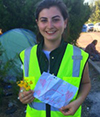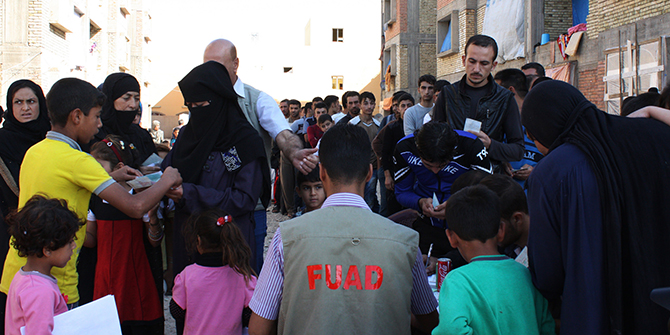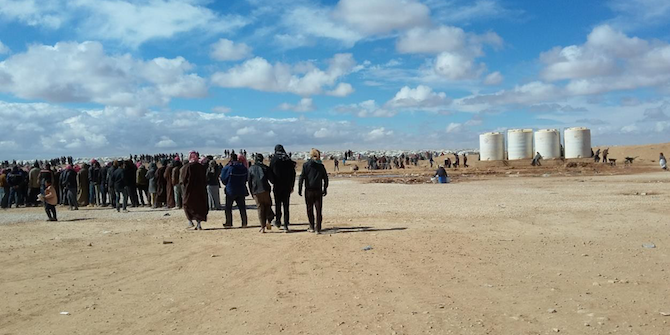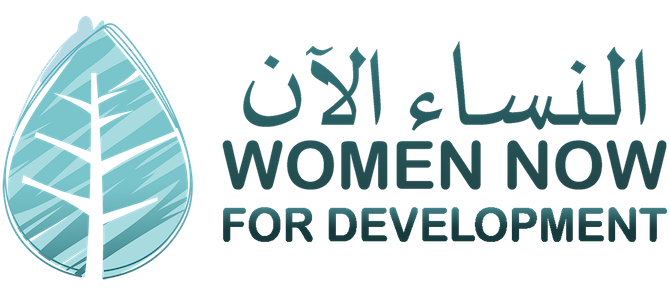by Leena Zahra
#LSERefugees

What can you do when you don’t visibly see the symptoms? Or when you cannot hear the painful calling for care? I recently visited three refugee camps in Greece to carry out translations for the NGO Syrian American Medical Society (SAMS), which highlighted the enormous odds facing the people who are looking for hope and some type of normalcy in a time of ambiguous and uncertain declaration of identification.
This experience gave me an introductory understanding of triage in patient treatment. Green tags are given to the ‘walking wounded,’ those who would require medical care at some point. Red tags are given to those requiring immediate care to be saved and can be, and black ones are for the deceased. Refugees remain without the ability to use the tools and monitors to detect the invisible and visible symptoms, ultimately to declare their status or wellbeing. If it were not for NGOs such as SAMS who offer the space for discussion and provision of care, addressing critical needs would remain rather limited. Without involving refugees themselves in the attempt to self-identify and understand their overall wellbeing, not only does there continue to be a protracted misunderstanding of the refugee crisis, but a chance to preserve future generations of Syrians and other forcibly displaced groups remains bleak and unlikely. There is a systematic reminder of further destruction to the land of people who have made the perilous journey over when looking into their tired souls.
I was working at three different camps at the time, which I am told are still growing. Hara, the rough gas station transit point notoriously known as a place for smugglers captures the identity of ‘criminal’, which gives the refugee a misconception of being noted with a felonious background. The EKO camp, with 2-3,000 individuals, offered a somewhat calmer atmosphere although as of recently, people have started being removed from it. Families and children from both camps nonetheless came into the mobile clinics with their fevers and mosquito bites, smiles and all, despite everything. Something persisted in the air, nostalgia for the Syrian souks and chatter of mothers trying to hush their children, many of whom have gone their whole lives without education. The military camp in the area of Syndos, although more organised, projected a feel of imprisonment, with no open fields for children to play in nor a sense of community that at least some of the other camps provided to some degree.
Conditions remain dire and resources limited. Illnesses and diseases are spreading like wildfire, with even a case of scarlet fever reported. Mothers are trying to identify not only the sex of their babies, but also their nationality. Syrian? Greek? No one knows. There is an urgent need for stronger checkups on these statuses. With the continuation of Ramadan cases of Diabetes, for instance, are soon to get worse as Muslims fast, going almost 17 hours without food or drink.
For the refugees, there is no way back but no way forward, with limited access to the asylum system. Whether it’s protection, shelter, security, sanitation, specialised childcare or the prevention of early and forced marriages, there is no standard and consistent response. Some Syrian refugees have even said that being under the barrel bombs in Syria would be more bearable than their treatment thus far in Europe. Many have spent three or four months without many of their family members. One woman told me, ‘fleeing the war? This is worse than war’. You can see it in the discolor of their eyes, their high blood pressure and the need for children to act beyond their years.
The issue remains of the necessity for refugees and asylum seekers to show signs of deteriorating physical health in order to gain recognition from the local, regional and international communities. Other related issues, such as mental health, access to asylum support, or even the ability to make their voices heard are often overlooked in this uncertain environment. Syrian people, previously known for their resilience, are now reduced to green, red and black tags.
As the Holy Month of Ramadan continues and with no clear end to the injustice in Syria and the transit and destination refugee camps, I only hope for peace, protection and care for those who have fled within and outside Syria.
 Leena Zahra is a Syrian American MSc candidate in International Development and Humanitarian Emergencies at LSE. Her research and passion lies within protection and vulnerability cases in protracted displacement of refugees, asylum seekers and Internally Displaced Persons. Most recently she has been translating in Idomeni at the Greek/Macedonian border for SAMS. She tweets at @zahraleenz.
Leena Zahra is a Syrian American MSc candidate in International Development and Humanitarian Emergencies at LSE. Her research and passion lies within protection and vulnerability cases in protracted displacement of refugees, asylum seekers and Internally Displaced Persons. Most recently she has been translating in Idomeni at the Greek/Macedonian border for SAMS. She tweets at @zahraleenz.






